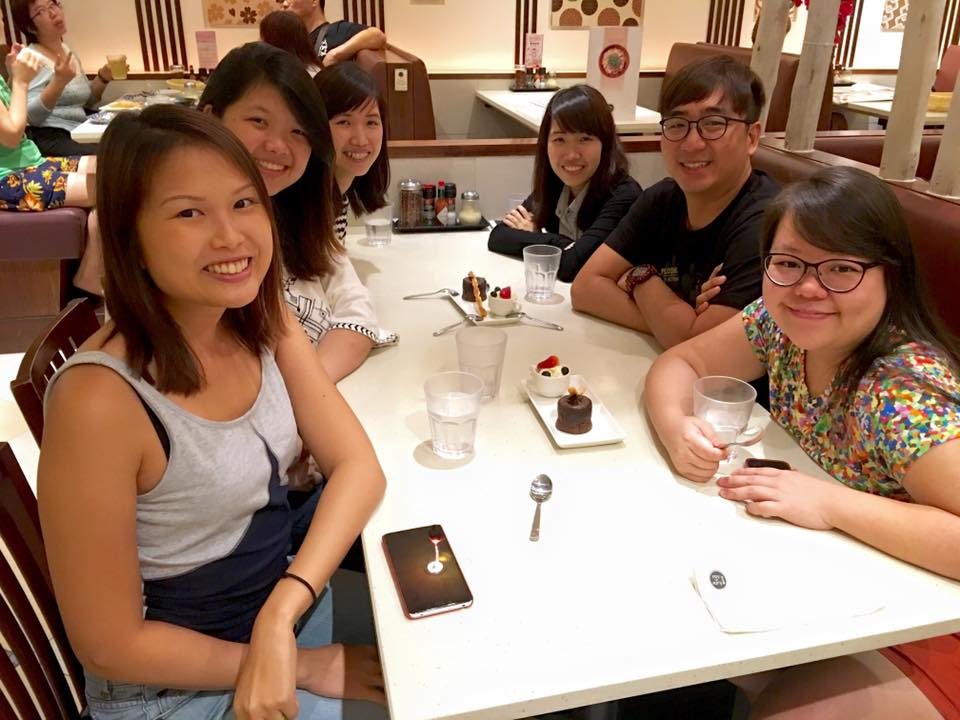When it comes to working with sound designers/composers, there isn’t a one-size-fits-all way of having an effective audio pipeline; it depends on which practices suit your company’s working style or culture the most to bring out the best in your game. In their Casual Connect Asia 2016 lecture, IMBA Interactive’s co-founders Gwen Guo and Sharon Kho shared various project postmortems from small, bite-sized casual games to AAA titles, and discussed how you can find the best audio pipeline for your team. They mentioned: “(Sound designers) ask a lot of questions. Besides technical requirements, we ask to understand the soul of the games.”

DOWNLOAD SLIDES
Singapore-based IMBA Interactive was founded to provide premium interactive audio content for video games in Asia. This includes sound design, music, voiceovers, audio implementation and linear audio such as game trailers.
The three co-founders were previously all freelancers that had worked together at Singapore MIT GAMBIT Gamelab. Gwen Guo, who is the lead sound designer, along with working on project management and business development, thought that it would be better to join forces than to compete for every job in the smaller market of Singapore. So they messaged Sharon Kho (who is IMBA’s lead composer in addition to dealing with finance, bookkeeping and outreach for Taiwan) and Sharon agreed with Gwen’s idea to team up to bring high-quality game audio to Singapore, They brought in the third member, Jeremy Goh, who does IMBA’s work in sound design, voiceovers and post-production.

Gwen previously worked at GAMBIT as an in-house sound designer/composer. Working in-house helped them understand how game companies operate: from art, design and code to marketing, business development and production.
Sharon started out in the fashion industry, where they learned skills in managing the whole process from prototyping to the final product while also learning to communicate will all parts of the team. Meanwhile, they have always sung and played instruments and the GAMBIT program let them turn the hobby into a job, combining their skills learned from working in fashion and their talent with music.
Lifelong Love of Music
Both Gwen and Sharon loved music and video games from an early age, though neither considered it as their first career choice. Gwen wanted to be a marine biologist while Sharon wanted to be a cartoon artist and a fashion designer.
While they took a circuitous route into game development, they have some very specific advice for anyone who wants to enter the realm of game audio. “Be open-minded, versatile and just be a really great person to work with,” they advise. “Many composers or music producers who want to go into games already have a sort of ‘style’ they have, but a game composer requires you to compose across genres. Clients are looking out for reliable and trustworthy sound designers to work with; they would not tolerate arrogant and stubborn service providers no matter how good you are.”

Career Gambit
The Singapore MIT GAMBIT Gamelab was a seminal moment in the life of both Gwen and Sharon. Despite a background in music, both felt trepidation about entering the industry.
“Even right at the interview, I presented an art portfolio, but got chosen for sound instead because of my electronic dance music productions (which was a hobby at that time),” said Gwen. “It was a stroke of luck that that happened and the exposure to what it was like providing audio to different game dev teams was something I could see myself enjoying as a career.”
Sharon has been playing in a band for years, though interest in game sound and music only came about while at audio engineering school. While they were nervous at first, they say the GAMBIT internship “truly turned it around for me, it became a passion and real when I realized that I had the ears to really design sounds and music for games.”

Embracing Changes
When you go from being a freelancer to running a startup like IMBA, there are going to be some changes. Gwen dealt with scenarios they never would have imagined that forced them all to adapt as new situations have come up. “I guess my favorite part about my job is going through the journey with my two co-founders and watching each other grow in multiple aspects and developing into amazing individuals,” said Gwen.
Sharon feels roughly the same, describing the job as pulling them out of their comfort zone. Ultimately though, they say it’s completely worth it for them. “One of my favorite things about my job is that we embrace our differences and we learn from each other.”
Sound Inspiration
Making the aural magic happen is more art than science. Gwen is a big fan of the videos from designingsound.org and taking breaks to play with their cat, while Sharon takes inspiration from everyday life and meditates every morning and night to center themselves.
“Some of the stuff I do also comes from recordings of nature, like ice cracking and different sort of bug/frog/animal vocalizations,” explains Gwen. “Singapore is an urban city with high amounts of noise pollution, so I try to record overseas whenever I can, especially natural, remote locations.
In addition to the things they observed while walking around outside, Sharon also called out YouTube as a valuable resource. “There are many interesting artists out there [that] create in very interesting ways. The process of creating from scratch also inspires me,” Sharon said. “I love these YouTube stars Pomplamoose - they record everything and that’s something I want to do as well. There’s something magical when you record and put it all in one song or a sound. It motivates me.”

Communication is Key
As a company that contracts out its services, communication and expectations are a large part of what IMBA does. Some companies are not used to dealing with outsourcing, so IMBA has to be more assertive when making their requests and talking about deliverables. Other times, the development team isn’t prompt in responding to requests for art, design documents and scripts, so setting milestones while not adding to the burden of the development team is an important step.
Some clients will also expect perfect results in a very short period of time. Setting up a proper pipeline and respecting the decisions of the clients is a difficult balance. Ultimately, it’s worth it when the product finally ships and there’s a positive response from the clients and in reviews over the game’s sound.
Every individual client is different when it comes to putting in music that fits. While some know what style they want and give references an examples, some other developers let IMBA take the lead and they’ll send samples to the client to get feedback right away. Communication, regardless of who is dictating the style of the music, is key.

Getting the composer/audio designer on the level with the rest of the time as early as possible is also a huge plus. The positive effects don’t just boost up the audio, but also help tackle larger game design challenges. “You’ll be preparing yourselves and the audio designer to expect the right things and there will be more autonomy when it comes to designing your game,” says Sharon. “It’s also important to give references if you have already have an ideal vision of what your game should sound like, that way both parties can save a lot of time.”
Echos from the Future
Going forward, IMBA hopes that Dolby Atmos systems become affordable in more homes. While various visual technology, from VR to 4K, has always been evolving, audio technology is much more gradual. Stilll, IMBA keeps up with the trends, and they’ll be prepared to provide quality sound for VR when and if its needed.
“Also, game development studios are set to look more diverse in staff (and hopefully games),” they noted. “Actually 4 out of 5 of us at IMBA are women, which is pretty rare for a game audio team, and we hope to see more women join the industry. Gwen has recently given a talk at a non-game event about diversity and leadership; it’s not just about gender quotas, it’s about respecting different kinds of leadership on the same level.
“Softer skills like sensitivity, empathy and grace should be acknowledged equally with assertiveness and confidence. Men and women who lead in these softer skills should be recognized and rewarded for their contributions. This is an aspect which IMBA hopes to promote in the community on top of good game audio practices.”
Comments










